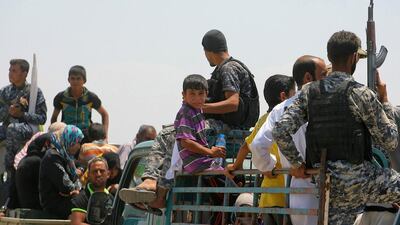Although retaking Fallujah from ISIL is an essential step towards neutralising the extremist group, the nature of armed conflict in urban areas inevitably means that civilians will be caught in the middle. With more than 50,000 people – including at least 20,000 children – believed to be trapped inside the Sunni majority city, some are likely to be forced by ISIL to fight alongside the militants or be used as human shields. Even for those who escape the fighting, access to food and water will be desperate until the end of a siege that is expected to be long and complicated because of the need to minimise civilian casualties.
All this underscores not just the need for care by the Iraqi forces preparing for this battle, but also the nature of the two antagonists. Concerns about possible civilian deaths were part of the reason why Iraqi forces halted their advance on Fallujah on Wednesday. As Iraqi prime minister Haider Al Abadi explained: “It would’ve been possible to end the battle quickly if protecting civilians wasn’t one of the foundations of our plan.”
Contrast that with ISIL, which has long shown an obliviousness to humanitarian concerns. Using violence to coerce civilians, including children, into its forces in Fallujah shows not only that this is a group with no concern for the general population’s well-being but also just how divorced from the real message of Islam this so-called Islamic caliphate has become.
Some of ISIL’s leaders will be actively seeking a high death toll among Fallujah’s civilians in order to present a distorted version of events in order to recruit others into the group’s ranks. The Iraqi forces are clearly cognisant of this, but need to ensure that they do not aid ISIL’s approach. One way they can achieve this is by taking care against using Shia militias on the front line, to avoid ISIL misrepresenting this as a sectarian fight between Sunnis and Shias.
The real message of this battle is clear – it is between ISIL, which seeks to subjugate and imperil the people under its control in pursuit of its twisted misinterpretation of Islam, and Iraqi forces that seek an end to violence and the restoration of the rule of law. While the Iraqi government has often hardly been an exemplar of governing for all its population and has often given in to the appeal of sectarianism, it is still in an entirely different league to the unbridled barbarism of ISIL.

